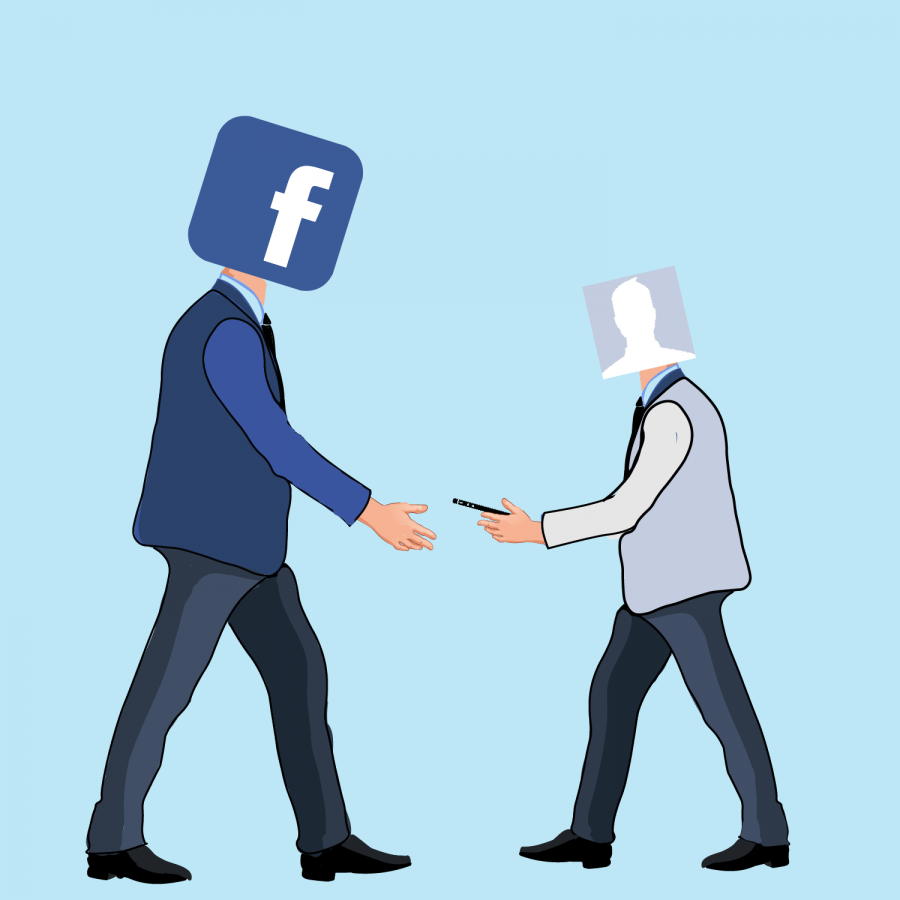There should be fair trade for our privacy
Apr 16, 2018
The recent Facebook scandal has caught huge public attention about our privacy on the internet, making the word “privacy” the most urgent agenda to address. On one hand, people are concerned for the abuse of user data, and on the other hand, those same people continuously enjoy the convenience and efficiency data brought to our lives. So, what could be the solution here? As strange as it sounds, the answer might be fair trade.
When signing up for Facebook for the first time, there’s a little tiny line of words under the “Create Account” button that says, “By clicking Create Account, you agree to our Terms and that you have read our Data Policy, including our Cookie Use.”
These lines give Facebook the right to use user data. The same goes with social media and other tech companies like Google. Therefore, when accepting these policies, users are actually trading their usage data in exchange for these companies’ services. The only difference is these services are paid with data — not money.
In his book “A Brief History of Tomorrow’s,” Yuval Noah Harari explains how data could be the next capital of human society, rather than money. Data is already being used to maximize the efficiency of markets by monitoring trends for modifying production. It might even be used to set political agenda or, even worse, cause manipulation of public opinion. However, despite the controversial arguments about how these companies should use data, maybe it’s a good idea to turn the attention to how they attain it in the first place.
According the World Fair Trade Organization, fair trade is a dialogue-based, transparent partnership with respect. These elements are exactly what’s missing in the process for users when they sell their personal data for online services. As it is right now, there are no negotiations and no dialogue, unlike other services we paid for.
Get The Daily Illini in your inbox!
When people pay their phone bill, they have the chance to choose how much data traffic they want, the different plans they can select and a fair, market-controlled price they can pay. After the purchase, information on how much data traffic is used, how many phone calls are made and how many texts are sent are then visible to users.
But, in the trade of privacy, people cannot choose how much data they want to buy and how many big data services they want from the company. There’s only one price and one option to the user: surrender their privacy or don’t use the services. In terms of a competitive market, as every online service provider implements similar policy, the market of privacy for services is basically a monopoly.
Most people are not wholly against online service companies using users’ data; rather, the problem is to what amount, how and to what extent our data is being used. In fact, using data can improve user experience greatly.
If the companies offer their customers free choice of how much, how often and how exactly their data is traded for various lineups of online services, there will be less complaints about invasion of privacy and more satisfaction with their services.
While the lawmakers are busy questioning Facebook about privacy and President Donald Trump is being passionate about negotiating “fair trade” with China, maybe it’s not a bad idea for them to think about fair trade for our privacy. After all, privacy is one of the most sensitive parts of our lives.
Luyuyang is a freshman in LAS.






